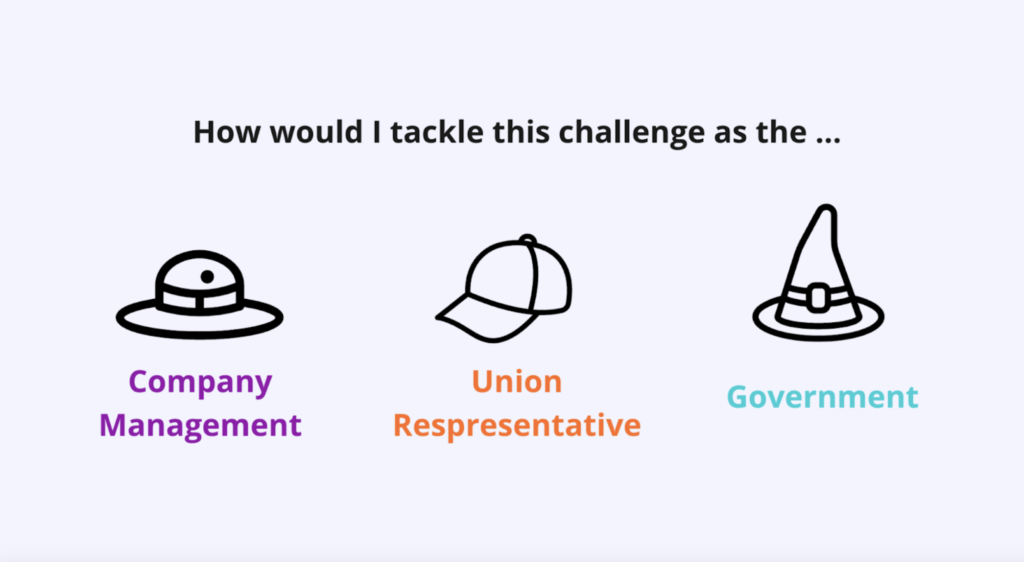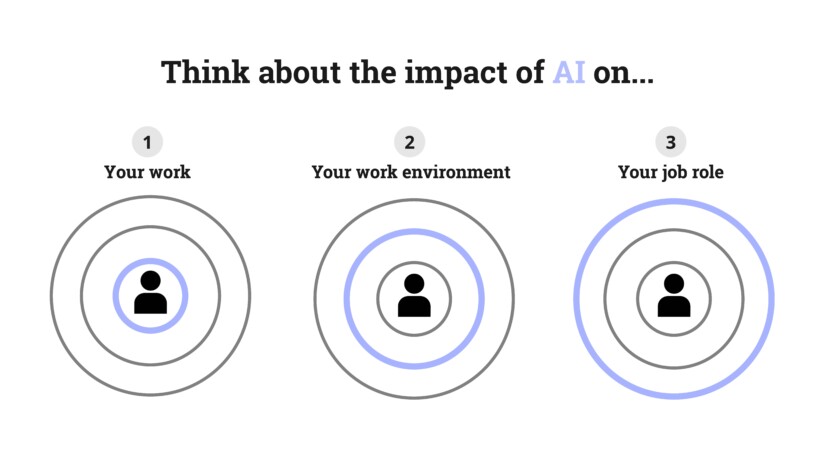It’s undeniable, AI is developing at an unimaginable rate and scale, and it’s hard to ignore the benefits it brings to productivity and creativity. In many ways, we’re still waiting for the dust to settle and cannot be sure of the impact that it will actually have, but we can be sure that the development goes on and it will continue to disrupt. We’ve been doing discovery research for one of our clients into the impact that AI is having on people’s work lives, and how they see their futures being affected. It’s clear that, apart from tech-centered developments, more human-centered considerations are also needed for how these tools and systems are being taken up, applied and utilised.
Building an understanding of how AI is impacting work
Through our research, it’s evident that although many people are excited about using AI and the productivity benefits they experience, they are also struggling to navigate this new world with deeply integrated advanced technology. They express concerns about the impact that this technology is having and even more concerns about what the future impact might be. We ran a study which consisted of 3 consecutive research sessions with a group of participants, to explore their challenges, hopes and fears when it comes to the impact of using AI in their work.
Delving into the lived experiences of AI
Initially, we facilitated online workshops where participants were grouped with like-minded people so they could openly express their struggles and opinions. This helped to normalise the challenges that were mentioned and encouraged people to be open and honest with their responses. Hearing from multiple voices helped validate the anxieties people were experiencing and achieved a shared sense of struggle. This session was then followed up with 1-1 interviews, where we deep-dived into participant’s experiences, allowing them to describe and reflect on their personal stories in detail. This gave them another opportunity to open up about the challenges and worries they were facing with AI at work.
Transforming current challenges into future solutions
From both of these initial interactions, we collected shared challenges which came up frequently and brought them into a third group workshop, where we re-invited the participants and asked them to respond to these challenges while ideating on potential solutions. We found that assigning participants particular hats or roles from distinct viewpoints during idea generation was highly effective in motivating them to ignore restrictions and think outside of the box. These sessions were highly collaborative and conversational, which benefited from previous connections made during the previous group session.

Guidance for policy development based on real-life experiences
As design researchers, our exploration into the nuanced experiences of individuals engaging with AI in the workplace serves as a catalyst for informed policy-making. Through these deep dives, we’ve uncovered a rich landscape of real-life stories, revealing not only the ethical dilemmas inherent in AI utilisation but also some cases a sense of powerlessness and uncertainty around its implications for the future of work.
Our role as design researchers at Stby is to reveal such insights and to promote their integration into policy-making discussions. By translating these narratives into actionable recommendations, we enable policymakers to develop informed strategies that address the concerns and needs of those directly impacted by AI technologies in the workplace. Ultimately, our research contributes to the creation of policies that foster responsible AI integration and promote a more equitable and sustainable future for all parties involved.
